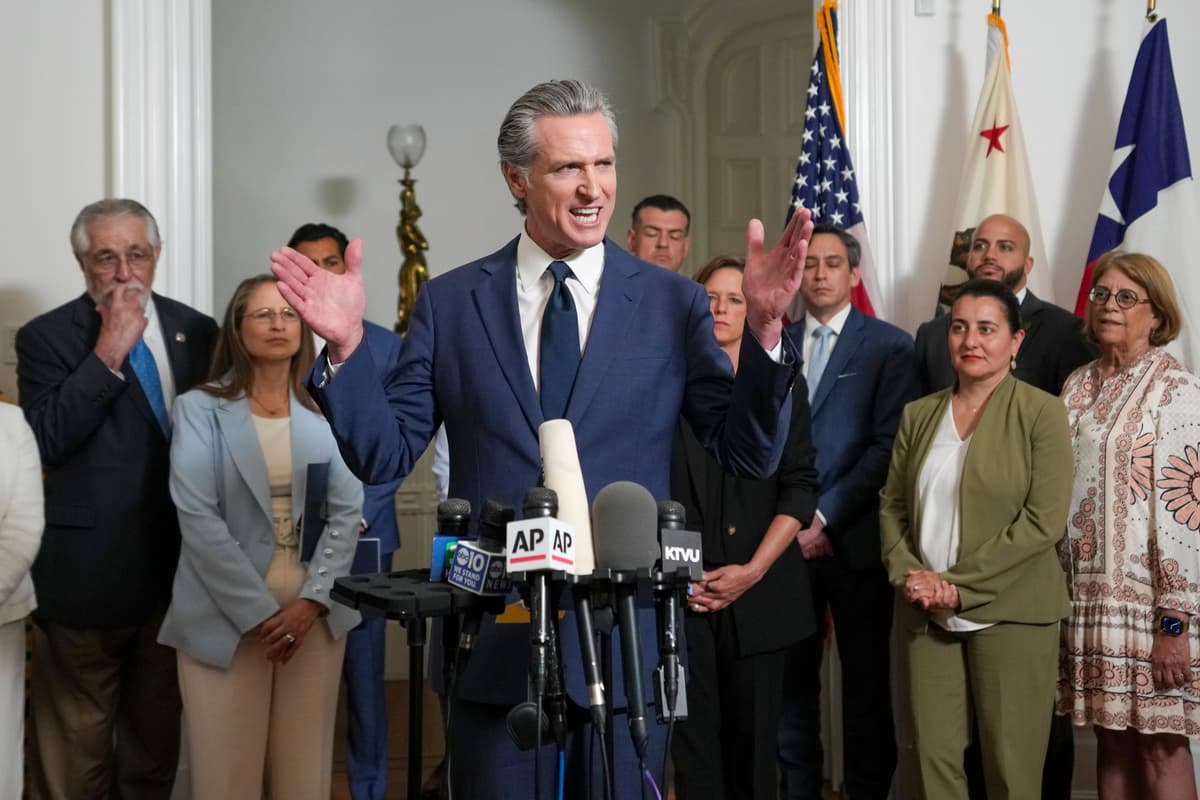California Governor Gavin Newsom is making notable shifts in his political stance as he eyes a potential run for the 2028 Democratic presidential nomination. Recent reports indicate that Newsom is moving from his traditionally progressive platform towards a more moderate position, aiming to appeal to independent voters who are dissatisfied with both major political parties.
A recent article in Newsweek highlights Newsom’s rise in presidential primary polls, suggesting that the upcoming election will significantly influence the Democratic Party’s future direction. The party currently faces a three-year low in net favorability, creating a challenging environment for candidates. In response, Newsom has begun to soften his previously hard-left views, particularly regarding fossil fuels.
As California grapples with soaring gas prices, which currently average $4.49 per gallon—approximately $1.33 higher than the national average—Newsom is reconsidering his earlier criticisms of the oil industry. Following announcements from Phillips 66 and Valero about upcoming refinery closures, Newsom now acknowledges the state’s reliance on fossil fuels during what he describes as an “inevitable energy transition.”
At a press conference last month, Newsom remarked, “We are all the beneficiaries of oil and gas. No one’s naive about that.” His policy shift includes ongoing negotiations with lawmakers to increase oil production, a plan that could receive legislative approval before the state session concludes in mid-September. This draft legislation proposes to provide blanket environmental approval for oil wells, effectively bypassing climate regulations and litigation that have previously stalled drilling projects.
This change in approach represents a stark reversal for Newsom, who in the past has referred to the climate crisis as a “fossil fuel crisis” and endorsed penalties on oil companies for excessive profits. Earlier this year, he directed the California Energy Commission to collaborate with refiners on strategies for fuel supply, leading to recommendations that closely align with industry interests.
Newsom’s pivot has not gone unnoticed. Over 120 environmental organizations have expressed opposition to his proposal, deeming it an industry giveaway that could degrade air and water quality.
Beyond energy policy, Newsom has made several other decisions that signal a shift from his progressive roots. In May, he proposed cuts to healthcare coverage for undocumented immigrants, citing California’s $12 billion budget deficit. This proposal marks a dramatic change from last year when the state extended free healthcare to all low-income adults, regardless of immigration status—a program that cost an additional $2.7 billion more than expected.
Moreover, Newsom has also taken a firmer stance on homelessness, offering cities a framework to address encampments and calling for decisive action. “No more excuses,” he stated. “It is time to take back the streets.”
Newsom’s recent actions extend to his public engagements as well. He has hosted prominent allies of former President Donald Trump on his podcast, including former White House strategist Steve Bannon and conservative activist Charlie Kirk. During these discussions, he found common ground with guests on issues such as restricting transgender athletes in women’s sports and criticized calls to defund the police.
Critics, including Norman Solomon, the national director for the progressive group RootsAction, have scrutinized Newsom’s transformation. Solomon contends that Newsom is compromising core principles in pursuit of the presidency, accusing him of “willing to throw basic decency under the 2028 campaign bus.”
As Newsom navigates his evolving political landscape, his ability to balance the expectations of both moderate and progressive constituents will be crucial in shaping his candidacy and the future of the Democratic Party. The next few years will reveal whether this strategic repositioning can resonate with voters and secure him the nomination.





































































